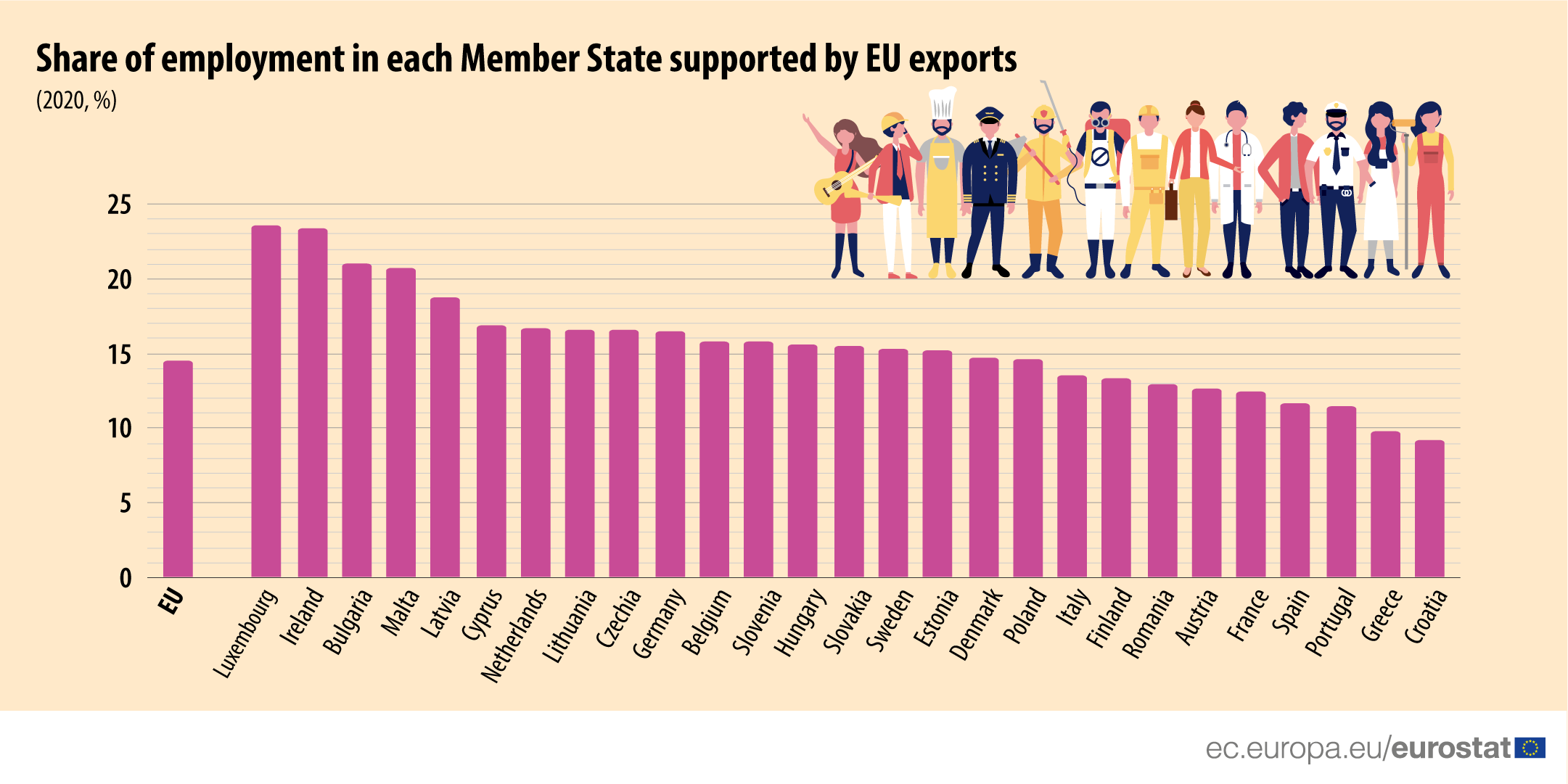Globalisation has resulted in many jobs being dependent on international trade. In 2020, the year the COVID-19 pandemic started, employment of 29.9 million persons in the EU was supported by exports to non-member countries, a slight increase from 29.6 million in 2019. In relative terms, export-supported employment represented 14% of total employment (206 million), which is equivalent to just over one in seven persons employed in the EU. While employment increased, the value of the associated trade slightly decreased, from €2 606 billion in 2019 to €2 438 in 2020.
EU exports supported €1 962 billions in value added in 2020, equivalent to 16% of the €12 032 billion in total value added created in the EU.
Source data: an analysis with FIGARO data
Germany was the EU Member State with the highest absolute level of employment supported by EU exports. In 2020, the jobs of 7.4 million persons in Germany were supported by exports from the EU, including exports from Germany itself. The level of export-supported employment in Germany exceeded the combined level of export-supported employment in France (3.5 million) and Italy (3.4 million), which had the second and third highest levels. Together, these three Member States accounted for almost half (48%) of the EU employment supported by exports to non-EU countries.
As a share of total employment, the employment in each of the EU Member States supported by EU exports ranged from just under 1 in 10 in Croatia (9%) and Greece (10%) to nearly one in four in Ireland (23%) and Luxembourg (24%).
For more information:
- Statistics Explained article on employment content in EU exports – an analysis with FIGARO data
- Statistics Explained article on value added content in EU exports – an analysis with FIGARO data
- Dedicated section on supply, use and input-output tables
- Database on supply, use and input-output tables
Methodological notes:
- The number of persons employed in the EU or in individual EU Member States supported by exports includes not only employment in enterprises that are directly exporting, but also in others which provide goods and/or services to support the production of exported goods and services; in other words, employment in upstream enterprises is also included. This may concern employment in enterprises in the same industry as the exporter or in a different one (depending, in part, on how detailed an activity classification is used). Similarly, exports by enterprises in one Member State may support employment in the same Member State or in another one.
- All references to exports in this article concern exports to non-member countries, in other words, extra-EU exports; trade between Member States is not considered.
- Employment covers all persons engaged in some productive activity (within the production boundary of national accounts). Employed persons are either employees (working by agreement for another resident unit and receiving remuneration) or self-employed (owners of unincorporated enterprises).
To contact us, please visit our User Support page.
For press queries, please contact our Media Support.


